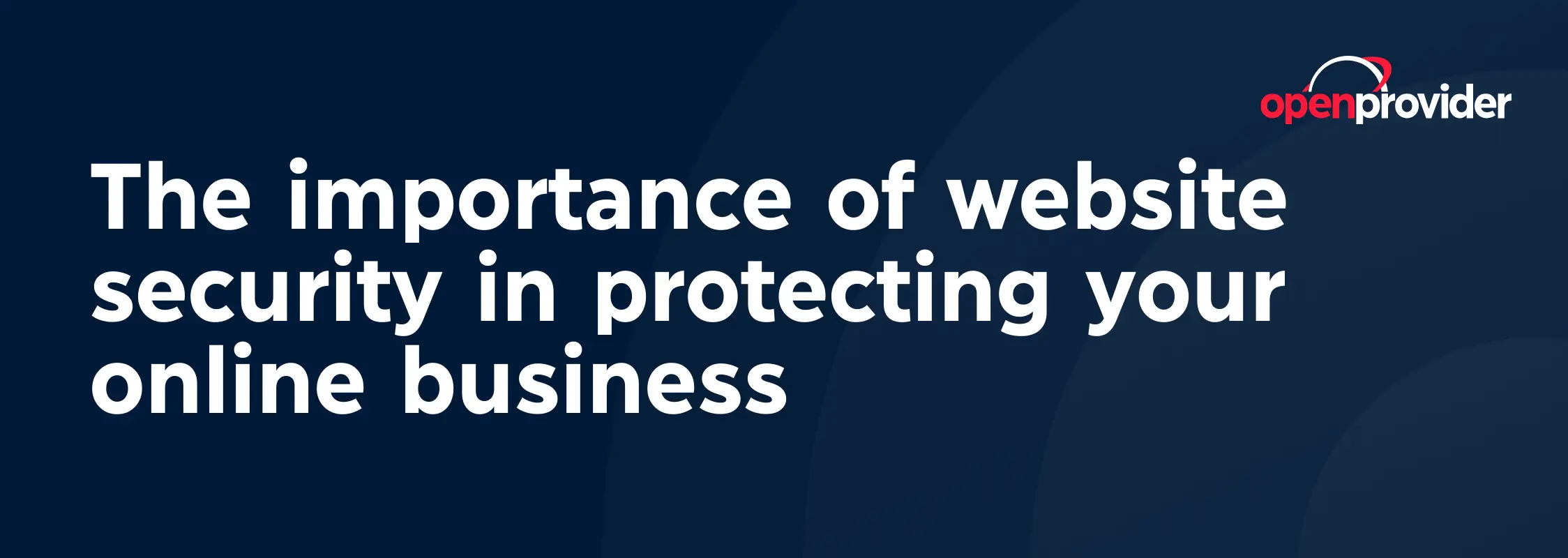Website security is no longer a luxury—it’s a necessity. Cyber threats continue to rise, targeting websites of all sizes and industries. Protecting your site isn’t just about safeguarding your data; it’s also about building trust with your customers, complying with regulations, and ensuring uninterrupted service.
Whether you run a small blog or a large e-commerce platform, keeping your website secure should be a priority for any business owner. In this article, we’ll cover the fundamentals of website security, why it matters, and actionable steps you can take to improve it.
What is website security?
Website security involves protecting your website from malicious attacks, unauthorized access, and data breaches. It encompasses a range of measures designed to prevent the exploitation of vulnerabilities, whether through phishing attempts, malware injections, brute-force hacking, or other methods.
Effective website security ensures your website functions properly, safeguards sensitive data, and maintains customer trust. It also shields your business from legal consequences tied to data protection regulations. A secure website not only protects you but also creates a safe environment for your visitors.
Why is website security important?
1. Sensitive data protection
Your website likely handles sensitive information such as customer names, email addresses, payment details, or proprietary business content. A data breach can lead to financial losses, reputational damage, and regulatory penalties.
2. Downtime prevention
Cyberattacks like Distributed Denial-of-Service (DDoS) attacks can render your site inaccessible, disrupting operations, sales, and user experience. A secure website is less likely to suffer downtime caused by malicious activity.
3. Customer trust
A secure website signals to visitors that their data is safe. Features like SSL certificates and security seals provide visible assurances that your site takes security seriously.
4. Prevention of legal and financial penalties
Failing to protect customer data can result in non-compliance with regulations like GDPR, leading to hefty fines or lawsuits. Proactive security measures help you meet legal obligations and avoid these risks.
5. Reputation
Once breached, recovering customer trust can be challenging and time-consuming. Security lapses can tarnish your brand image, discouraging potential customers and partners from engaging with your business.
Website security best practices
1. Use strong passwords and multi-factor authentication (MFA)
Weak passwords are an open invitation for attackers. Use strong passwords that combine uppercase, lowercase, numbers, and symbols for all user accounts. Enable MFA to add another layer of security, ensuring access is granted only after confirming identity through a secondary method.
2. Keep your software and plugins up to date
Outdated software is one of the most common vulnerabilities exploited by hackers. Regularly update your content management system (CMS), themes, and plugins to patch known security issues and reduce risks.
3. Install an SSL certificate
SSL certificates encrypt data exchanged between your website and visitors, preventing interception by malicious actors. This encryption builds user trust, improves search engine rankings, and is now a basic requirement for most websites.
4. Regularly back up your website
Backups are essential for disaster recovery. Schedule automatic backups and store them securely in a remote location. Regularly test your backups to ensure they can be restored quickly in case of a cyberattack or system failure.
5. Implement a Web Application Firewall (WAF)
A Web Application Firewall monitors incoming traffic and blocks malicious activity before it reaches your server. WAFs are effective against common attacks like SQL injections, cross-site scripting (XSS), and other threats.
6. Scan your website for vulnerabilities
Use automated security tools to scan your site regularly. These tools can identify weaknesses, detect malware, and provide recommendations for corrective actions. Combine this with periodic manual audits for a thorough security check.
7. Limit user access and permissions
Restrict administrative access to essential personnel only. Assign user roles based on necessity and review access permissions periodically to prevent unauthorized or accidental changes to your site.
8. Monitor for suspicious activity
Set up monitoring tools to detect unusual activity, such as repeated failed login attempts, sudden traffic spikes, or unauthorized changes to your files. Early detection of suspicious behavior can minimize damage and help you respond quickly.
9. Educate your team on security practices
Human error is a leading cause of security breaches. Build a security-friendly culture by training your team to recognize phishing attempts, use secure passwords, and follow proper security protocols when accessing the website’s backend.
10. Protect your email with spam filters and DMARC
Email is a common vector for cyberattacks, including phishing and malware distribution. Protect your email accounts by enabling spam filters to block suspicious messages before they reach your inbox. Additionally, implement DMARC to prevent attackers from spoofing your domain in fraudulent emails. DMARC helps ensure that only authorized senders can use your domain, adding a critical layer of protection for your website and your customers.
Conclusion
Improving website security requires a proactive and consistent approach. By implementing the best practices outlined above, you can reduce your risk of cyberattacks, protect sensitive data, and maintain your reputation. Start with the basics, like securing passwords and installing an SSL certificate, and build on these measures as your website grows.
For resellers and those who manage multiple websites, access to scalable and reliable security tools is an important cornerstone of their business. Openprovider offers a wide range of security products, including SSL certificates, email protection tools like hosted DMARC, and more—all at competitive prices. With Openprovider, you can streamline your security needs and provide your clients with robust protection they can rely on.
Explore our security product offerings and see how we can support your business needs.


